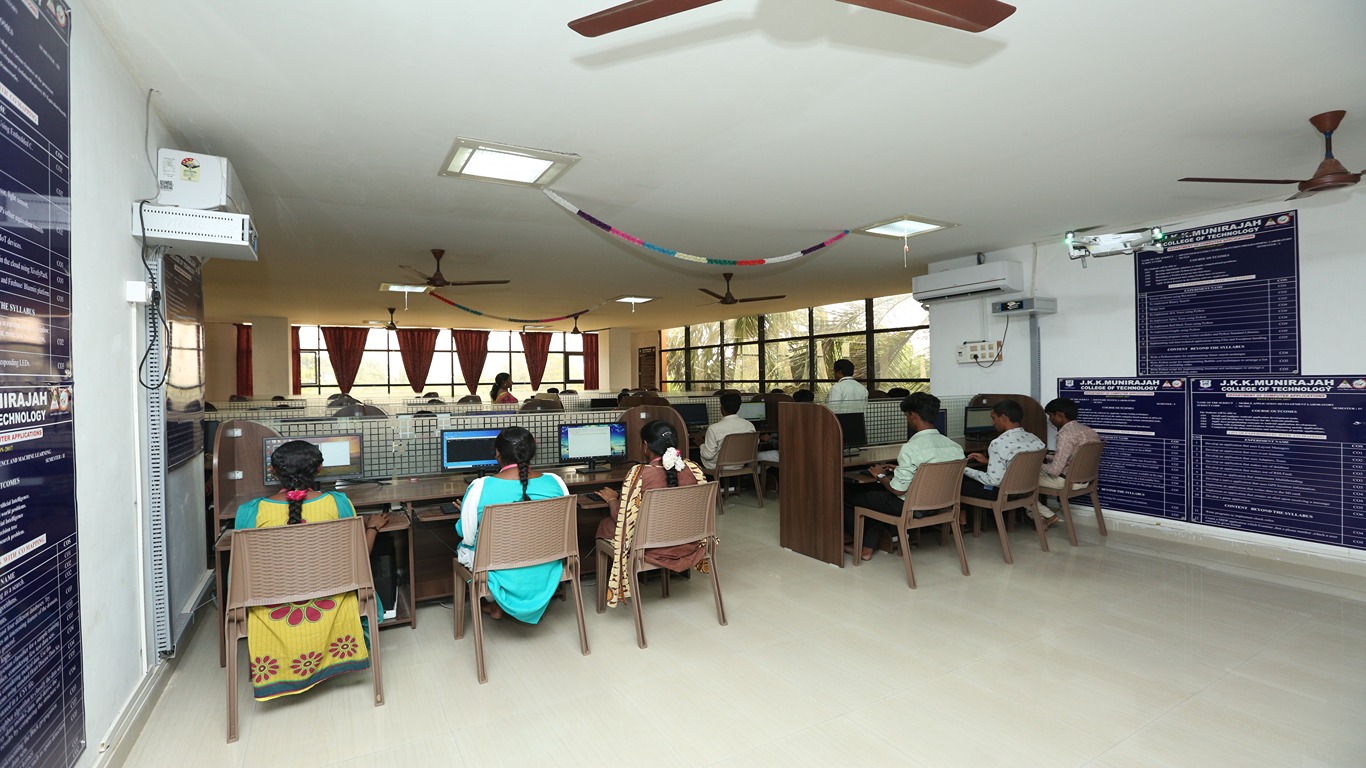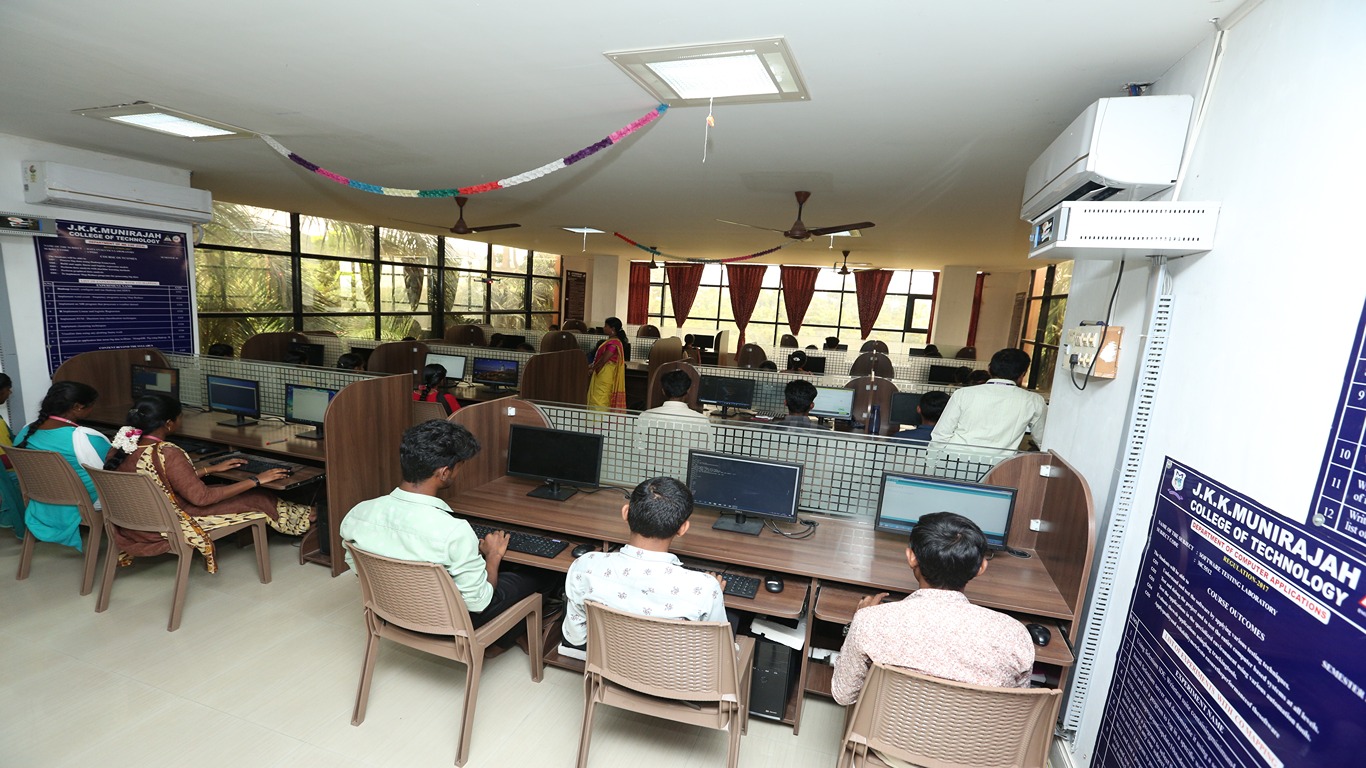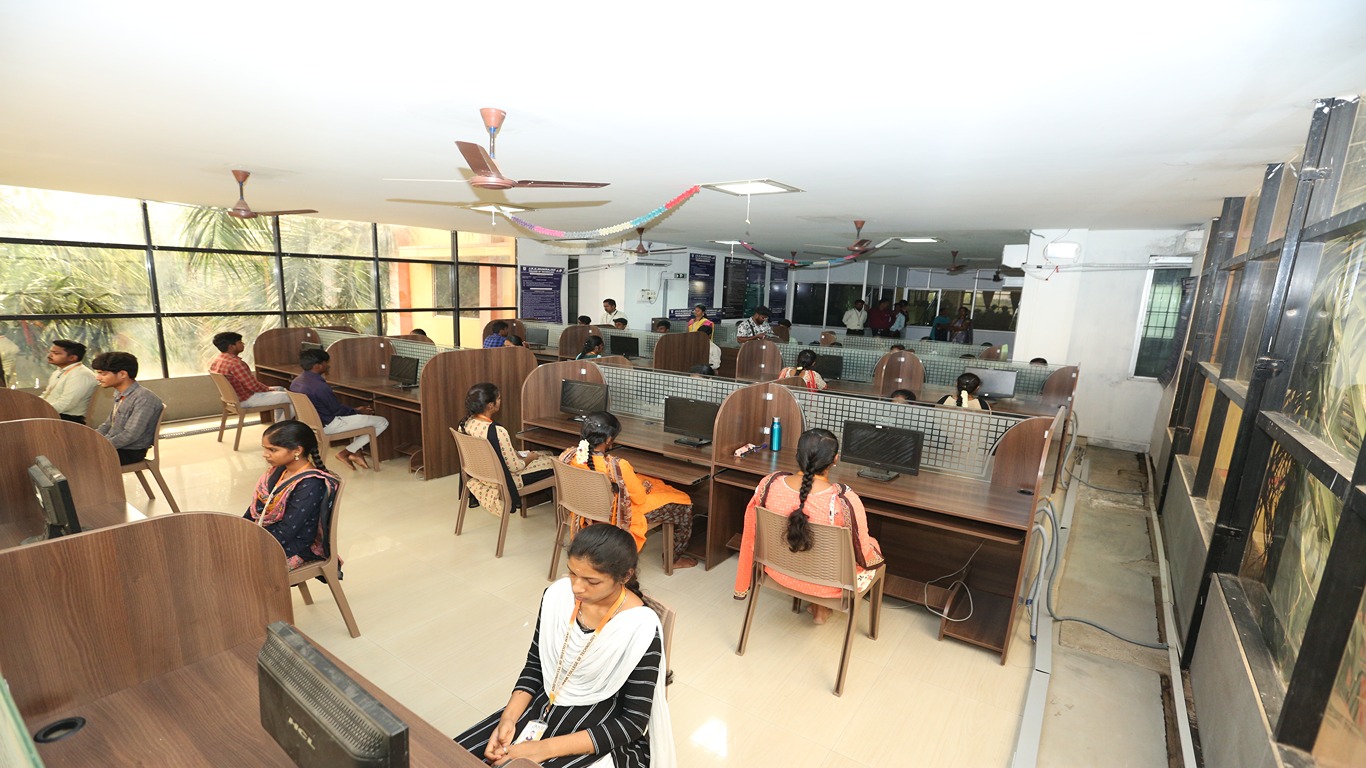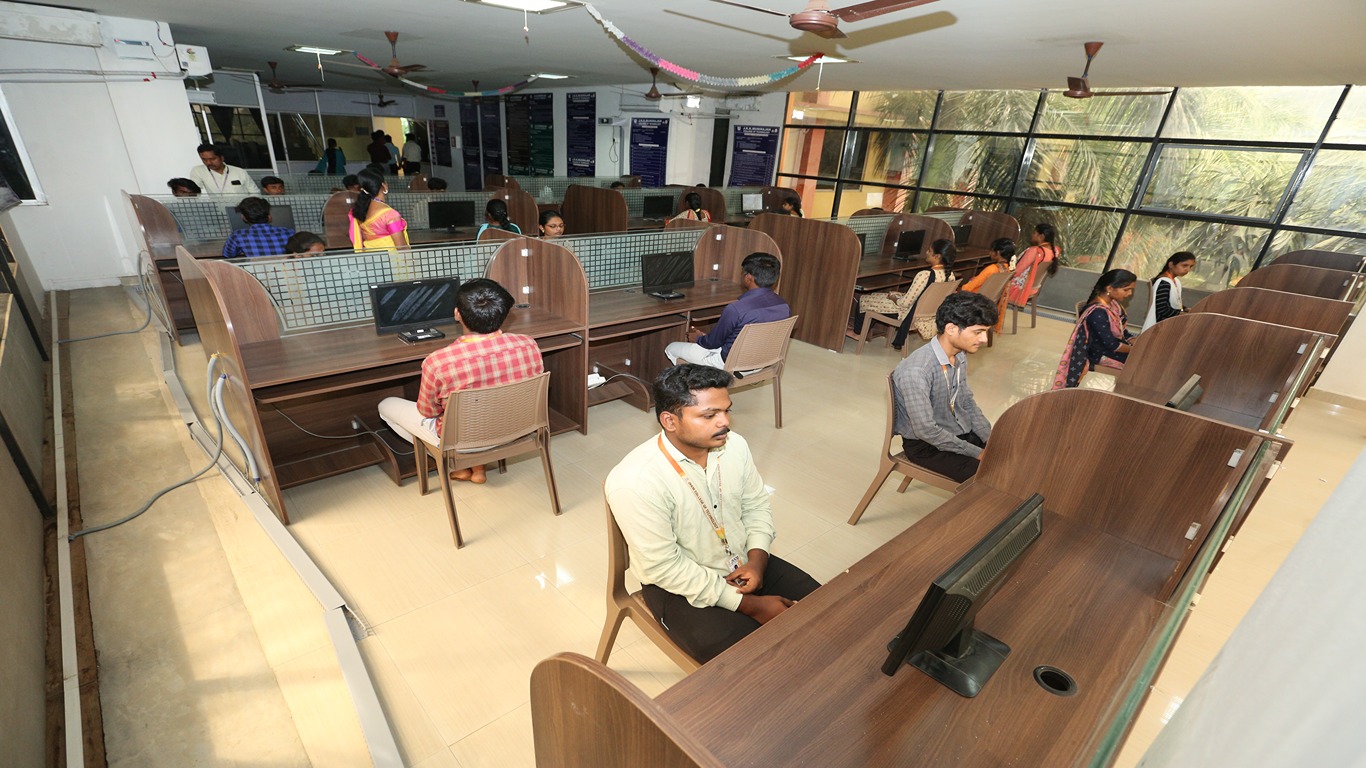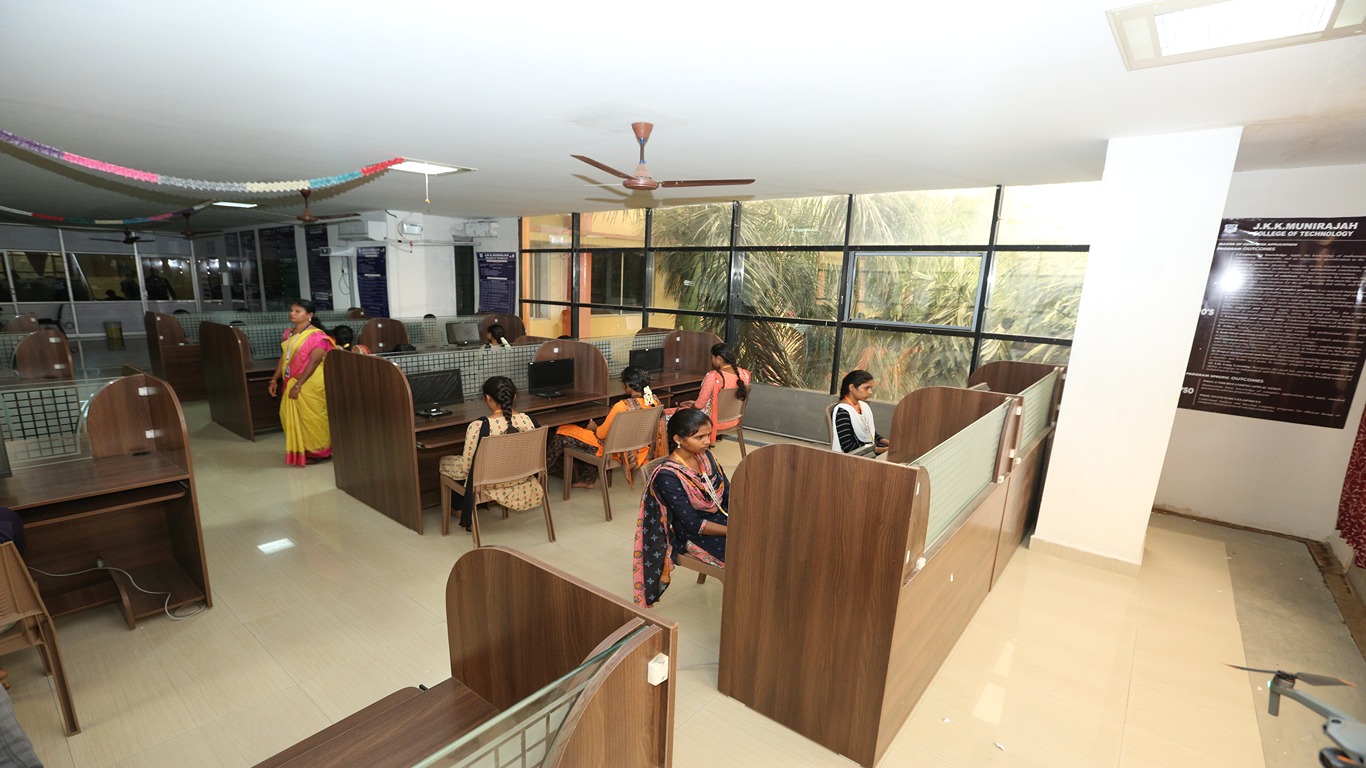Artificial Intelligence & Data Science
What is Artificial Intelligence & Data Science?
Data science combines statistical tools, methods, and technology to generate meaning from data. Artificial Intelligence takes this one step further and uses the data to solve cognitive problems commonly associated with human intelligence, such as learning, pattern recognition, and human-like expression.
Why should I study Artificial Intelligence & Data Science?
Data science and AI are some of the most cutting-edge technologies of our time, and they are changing the way we live and work. By learning these skills, you'll be at the forefront of technological advancement and have the chance to work on projects that are shaping the future.
Current Year Intake: 90 Seats
Vision
To invent a quality education, promote research and to accommodate the every changes in the requirements for the society in the domain of Artificial Intelligence and Data Science.
Mission
Empowering individuals with holistic development in the field of Artificial Intelligence and Data Science by providing specialized technical education and involve students on collaborative projects on emerging technologies.
PROGRAM EDUCATIONAL OBJECTIVES (PEOs)
Graduates can
- Apply their Artificial Intelligence and Data Science proficiency in varied collection of domains such as finance, social sciences and healthcare, showcasing the agility and impact of their skills.
- Strengthen their technical proficiency to advance AI and Data Science research, fostering sustainable ecosystem solutions with a focus on analytical precision, and continuous learning within a multidisciplinary team.
- Generate and design Artificial Intelligence based solutions to address the challenges in real world situations.
PROGRAM OUTCOMES (POs)
- Engineering knowledge: Apply the knowledge of mathematics, science, engineering fundamentals, and an engineering specialization to the solution of complex engineering problems.
- Problem analysis: Identify, formulate, review research literature, and analyze complex engineering problems reaching substantiated conclusions using first principles of mathematics, natural sciences, and engineering sciences.
- Design/development of solutions: Design solutions for complex engineering problems and design system components or processes that meet the specified needs with appropriate consideration for the public health and safety, and the cultural, societal, and environmental considerations.
- Conduct investigations of complex problems: Use research-based knowledge and research methods including design of experiments, analysis and interpretation of data, and synthesis of the information to provide valid conclusions.
- Modern tool usage: Create, select, and apply appropriate techniques, resources and modern engineering and IT tools including prediction and modeling to complex engineering activities with an understanding of the limitations.
- The engineer and society: Apply reasoning informed by the contextual knowledge to assess societal, health, safety, legal and cultural issues and the consequent responsibilities relevant to the professional engineering practice.
- Environment and sustainability: Understand the impact of the professional engineering solutions in societal and environmental contexts, and demonstrate the knowledge of, and need for sustainable development.
- Ethics: Apply ethical principles and commit to professional ethics and responsibilities and norms of the engineering practice.
- Individual and team work: Function effectively as an individual, and as a member or leader in diverse teams, and in multidisciplinary settings.
- Communication: Communicate effectively on complex engineering activities with the engineering community and with society at large, such as, being able to comprehend and write effective reports and design documentation, make effective presentations, and give and receive clear instructions.
- Project management and finance: Demonstrate knowledge and understanding of the engineering and management principles and apply these to one’s own work, as a member and leader in a team, to manage projects and in multidisciplinary environments.
- Life-long learning: Recognize the need for, and have the preparation and ability to engage in independent and life-long learning in the broadest context of technological change.
PROGRAM SPECIFIC OUTCOMES (PSOs)
- Develop advanced artificial intelligence algorithms to optimize domain-specific processes for enhanced decision-making in several sectors, including business and governance.
- Utilize the theoretical understanding of AI and Data Analytics, as well as real industrial tools and procedures, to effectively address and resolve complex social challenges.
- Build data analytics, data visualization, knowledge acquisition, knowledge representation, and knowledge engineering abilities to coordinate complicated projects.
AIDS

